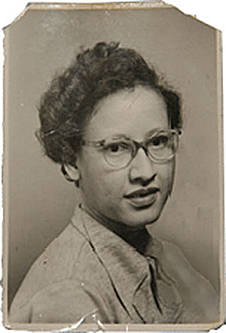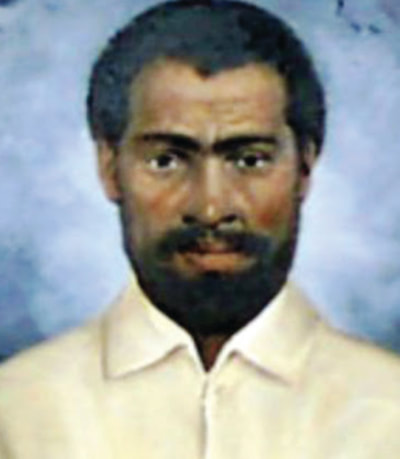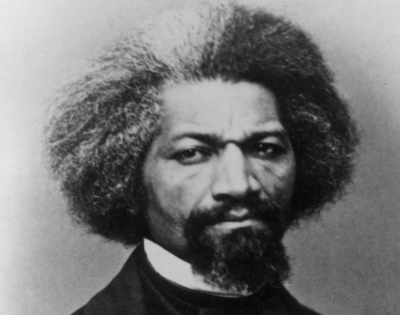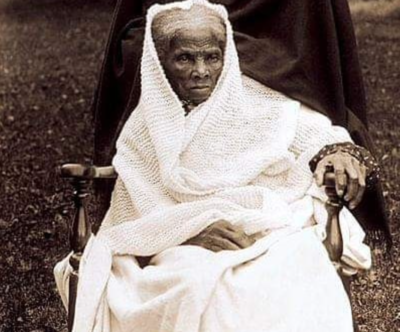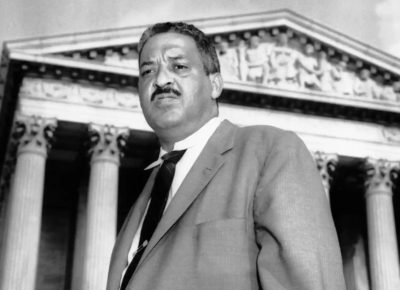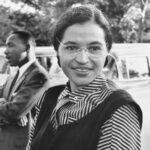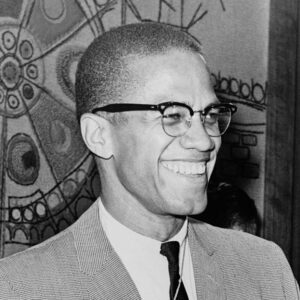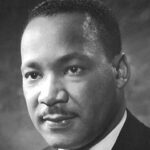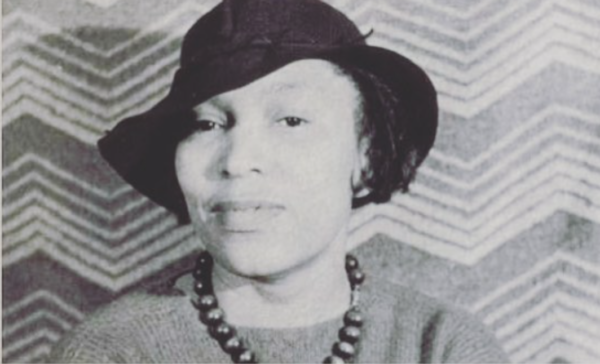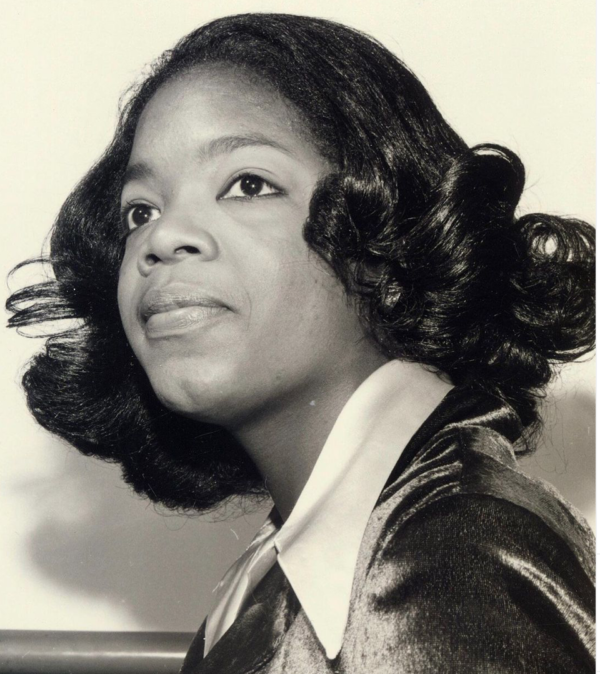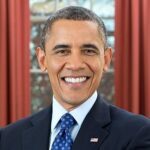|
Katherine Johnson loved math and helped NASA put an astronaut into orbit around Earth. Later on, she helped put a man on the Moon.
She loved learning math the most. Katherine went through school quickly. She started high school when she was just 10 years old! When she was 15, Katherine began college. She took classes to become a mathematician. That is someone who is an expert in math. She learned how to solve big problems by using math, especially geometry. Geometry is a kind of math that uses lines, shapes and angles. Katherine studied hard. She graduated from college when she was 18. When Katherine was 34, she heard that NACA (later called NASA) was hiring African American women to solve math problems. These workers were called “computers.” Katherine applied for one of the jobs, but the jobs were already taken. Still, she did not give up. She applied again the next year, and this time NACA hired her. She worked with a large group of women who were all computers like she was. But Katherine was different from the other human computers. She asked a lot of questions. She wanted to learn more about her work and about NASA. So she started going to meetings. Before Katherine, only men attended these meetings. She changed that! She learned so much that she left her job as a computer. She became a team member who worked on different space projects for NASA. In 1962, the United States decided to send people to the Moon. That was big news. Getting to and from the Moon would take a lot of work. As the U.S. space agency, NASA would have to solve many, many problems. So NASA created large teams to solve them. |
Nat Turner(OCTOBER 2, 1800 – NOVEMBER 11, 1831)
|
Proclaimed as a prophet, Nat Turner’s actions would change the South irrevocably. Turner was arduously religious and became a preacher for fellow slaves. His powerful sermons deeply moved his community, so much so some referred to him as “The Prophet.” Turner believed he was called upon by God to inspire faith and lead his people to freedom.
His moment came in 1831. Turner witnessed a full-eclipse and took this as his God-given sign to act. He led the only effective, sustained slave rebellion in US history. Six weeks after he started his crusade to freedom, it took 3,000 militia troops to overpower the 75 freed slaves in Turner’s army. Eventually, Turner was captured in Jerusalem, Virginia. Not long after, he was tried and hanged. Turner’s rebellion, or “Old Nat’s War” as it was called, rippled through history. It shattered the complacent Southern myth that slaves were content to serve. It showed all Americans the power of a few to fight for what should have always been theirs—freedom. |
Frederick Douglass(FEBRUARY 1818 – FEBRUARY 20, 1895)
|
In the aftermath of the Civil War, millions of slaves were granted their freedom. Though African Americans gained their freedom, certain rights were still limited, including the right to vote. One of Frederick Douglass’s Famous quotes stated,” Slavery is not abolished until the Black man has the ballot”.
Born into slavery in 1818, Frederick Douglass would become one of the most pivotal leaders of the US abolitionist movement, a pillar of early American philosophy, and a key figure in African American History. When he was 21, Douglass managed to escape slavery. Instead of hiding in safety, Douglass joined the abolitionist movement with fervor. An exceptional orator, Douglass spoke about the horrors of his experiences as a slave. He published his first work, an autobiography titled, Narrative of the Life of Frederick Douglass, an American Slave. The work was a huge success in the US and in the United Kingdom. He then went on to found and edit his first newspaper, the North Star. Later, Douglass was appointed to several political positions, and he never stopped championing the rights of Black people. |
Harriet Tubman(March 1822 – March 10, 1913)
|
Conductor, General Tubman, Moses—Harriet Tubman’s fearless leadership in the Underground Railroad earned her many names. Her incredible story started in Maryland, where she was born into slavery around 1820. At 29, Tubman ran away from her plantation, using the North Star to guide her way to Philadelphia. A year later, she returned to help her sister and her sister’s children escape her old plantation. This was the first of 19 perilous journeys Tubman led to free over 300 slaves throughout her life.
As a conductor of the Underground Railroad, Tubman was clever, fierce, and courageous. She became so notorious that the South posted a $40,000 reward for her capture, but she was never caught and she never lost a single passenger. Federick Douglass once said, “I know of no one who has willingly encountered more perils and hardships to serve our enslaved people than [Harriet Tubman].” After the Civil war—where she used her skills in subterfuge as a Union spy—Tubman settled down in Auburn, New York. But her work wasn’t finished. Tubman continued to fight for equality until her death in 1913. |
Thurgood Marshall (July 2, 1908 – January 24, 1993)
|
Some of history’s most important battles don’t take place in a warzone. Sometimes, freedom is won in the pristine halls of a courtroom. And there were few warriors more skilled in that arena than Thurgood Marshall. Born in 1908 to a school teacher and a railroad porter, Marshall became a lawyer and fought for social justice as the staff lawyer of the NAACP. His most famous case was Brown v. Board of Education of Topeka (1954), where Marshall successfully argued that educational facilities that separated students by race were not equal.
This wasn’t the only time Marshall would take on the highest court in the land in pursuit of justice. In fact, Marshall argued and won more cases before the Supreme Court than anyone else in American history. Eventually, Marshall’s position in the courtroom shifted from the courtroom floor to the judge’s seat. Thurgood Marshall became the first Black Supreme Court Justice in the US, gaining a reputation for expanding civil rights and protecting the American people from systems of oppression. |
Rosa Parks(February 4, 1913 – October 24, 2005)
|
Rosa Parks was born February 4, 1913, in Tuskegee, Alabama, and unfortunately died on October 24, 2005, in Detroit, Michigan. Rosa Parks was a civil rights activist who played a major role in the equality of Blacks and Whites in America. One of her many commitments to trying to provide equality for everyone was refusing to move to the back of a bus to let a white individual sit. Through her strong involvement in the community, she gained these titles from the United States Congress called: “the first lady of civil rights” and “the mother of the freedom movement”.
|
Malcolm X(May 19, 1925 – February 21, 1965)
|
Malcolm Little was born on May 19, 1925, in Omaha, Nebraska, and was also sadly assassinated in Washington Heights, New York City, New York, on February 21, 1965. Malcolm X was an African-American Muslim Minister. and African-American human rights activist. He preached self-worth to the community of Blacks in America and tried to teach many to reflect on where they came from and what they have accomplished; while also teaching them to love themselves and appreciate who they are and what they have.
|
Martin Luther King Jr.(January 15, 1929 – April 4, 1968)
|
Martin Luther King Jr was born on January 15, 1929, in Atlanta, Georgia, and was sadly assassinated on April 4, 1968, in Memphis, Tennessee. He was an African-American Baptist Minister and an African-American civil rights leader. Through his impeccable leading style and powerful messages to the world, he single-handedly enacted a major change in the minds of political leaders, which gave way to African-Americans gaining more rights in America. A very famous quote made by him was, “I have a dream”; which was the name of his well-known speech that helped changed the face of America today.
|
Zora Neale Hurston(January 7, 1891– January 28, 1960)
|
Known as the Jewel of the Harlem Renaissance, Zora Neale Hurston was one of the most successful and most impactful black woman writers of the 20th century. Hurston grew up in the first incorporated all-black town in the country in Eatonville, Florida. Eatonville was a large inspiration from where her stories were based.
Over the course of her life, Hurston published four novels, two books of folklore, an autobiography, multiple short stories, numerous essays, articles, and plays. Her literary voice was lyrical, authentic, and didn’t pull any punches when it came to the reality of Black experiences. By her death in 1960, Hurston was a renowned anthropologist, author, playwright, and folklorist. Without a doubt, Zora Neale Hurston’s voice is a vibrant thread in the tapestry of the Harlem Renaissance. |
Oprah Winfrey(January 29, 1954 – Present)
|
Oprah Winfrey’s indomitable spirit, engaging personality, and business mind took her from radio talk show host to philanthropist billionaire. Born in rural Mississippi in 1954, Oprah Winfrey pursued broadcast journalism. When she took a job at a failing talk show, AM Chicago, her casual, insightful, yet personal approach transformed the program into a huge success. In 1985, it became The Oprah Winfrey Show, becoming the highest-rated talk show in the US. But she didn’t stop there.
Winfrey started her own TV and film production companies, a magazine, and eventually, an entire TV network. Winfrey became one of the wealthiest women in the world and North America’s first Black multi-billionaire. She put that money to work in her philanthropy projects. By 2012, Winfrey had given away about $400 million to educational causes, including college scholarships, founding the Oprah Winfrey Leadership Academy for Girls in Johannesburg, and contributing millions to the Smithsonian’s National Museum of African American History and Culture. In 2012, President Barack Obama awarded her the Presidential Medal of Freedom. In 2020, Winfrey partnered with social justice leaders, the NAACP in the “OWN Your Vote” initiative to increase voter registration in Black communities. To this day, Winfrey is committed to serving her community and making a positive difference in the world. |
Barack Obama(August 4, 1961 – Present)
|
President Barack Obama was born on August 4, 1961, at the Kapiolani Medical Center for Women and Children, in Honolulu, Hawaii. Obama was a United States Politician who became America’s first African-American President. He served from January 20, 2009, through January 20, 2017. With being America’s first Black President, he showed how much the African-American population in America has achieved in the past centuries as a whole. He proved that African-Americans have achieved the most that they ever have in history.
With these 10 most influential African-American leaders, they have all showed why Black History Month is so important; as well as showing why African-Americans deserve to have the month of February to promote themselves and their accomplishments. |

